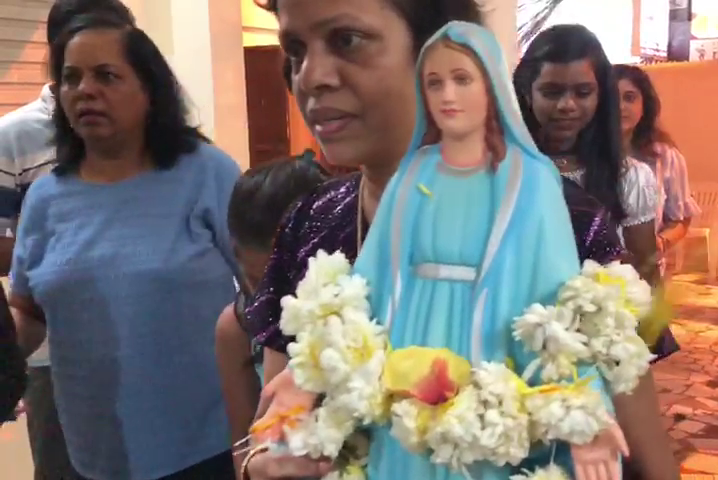Panaji, November 16, 2016 …. “The press are an important pillar of democracy,” said Chief Minister of Goa, Shri Laxmikant Parsekar while speaking at the National Press Day function organized by the Department of Information and Publicity, on the occasion of the Foundation Day of Press Council of India, at Panaji on Wednesday. The function was organized in collaboration with Goa Editor’s Guild, Goa Union of Journalists, Photo Journalist’s Association of Goa, Electronic Media Journalist’s Association, Sports Journalist’s Association of Goa and South Goa Journalist’s Association. Talking about his experience with the media, the Chief Minister said, “The press persons are the best people. Their suggestions are very useful. We have several welfare schemes for journalists, and our government will resolve pending matters of the press in Goa, amicably, soon.”
The keynote speaker for the day was the Chairperson and Editor in Chief The Print, Shri Shekhar Gupta, who spoke on the theme ‘Reporting from Conflict Area-A Challenge for Media’. Shri Gupta said, “India has a history of reporting conflict. There are mainly three types of such conflict reporting. One is conflict with one’s country against a foreign country. The second type of conflict is when there’s conflict with one’s own state and its people and the third conflict is when people are at conflict with their fellow citizens. Each kind of conflict poses its own challenges and dilemmas to journalists. But it is important to always stay with the truth. The problem with conflict reporting in India is when some end up glorifying what little conflict there is and don’t understand the grief of those who are going through this conflict. As journalists it is important to be sensitive, fair and correct when reporting from conflict zones. The closer you are to the truth, the better,” he said.
Shri Gupta added, “Journalists have to be like good doctors in the sense that just as a good doctor will diagnose and treat a patient only for its illness, and not on other factors such as religion, region etc, so also journalists must look at facts clinically”. Shri Gupta concluded, “When reporting on conflicts nothing serves the national interest more than the absolute truth.”
Shri Daulat A. Hawaldar, IAS, Secretary, information and Publicity, who was the guest of honour said, “Words have tremendous power to influence minds.” Shri Hawaldar added further, “Before the written word came, there was oral tradition of storytelling like folk tales. The dominant theme in folk tales was their reference to love and compassion. I expect the media to have larger human values. They should articulate and give vent to the collective minds of the people, that’s when people will keep reading their stories.”
Shri Jayant Tari, Director of Department of Information and Publicity, earlier in his welcome address said, “The Department has been making a lot of efforts to reach out to the public. We have come out with innovative ways to reach out to the public. We are also committed to the welfare and well being of journalists by implementing various schemes like the financial assistance to purchase cameras and laptops and the Patrakar Kritadnyata Nidhi scheme.”
On the occasion, senior journalists Smt. Devika Sequeira, Shri Sudhakar Naik, Shri Paul John Fernandes and Smt. Pamela D’Mello were felicitated. Smt. Sanghmitra Faldessai introduced the recipients.
The Photo Contest Awards were also presented. 16 journalists were also presented sanction letters for cameras and laptops.
Shri Shyam Gaonkar compered the event. Also present on the occasion was Shri Sadguru Patil, President of Goa Union of Journalists. Shri John Aguiar, Information Officer thanked all the press for making the function a grand success.




